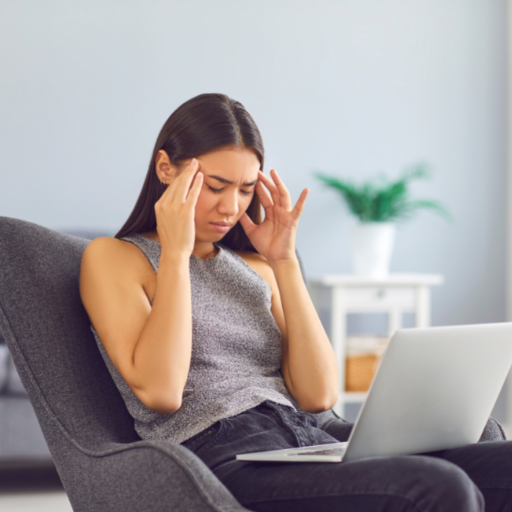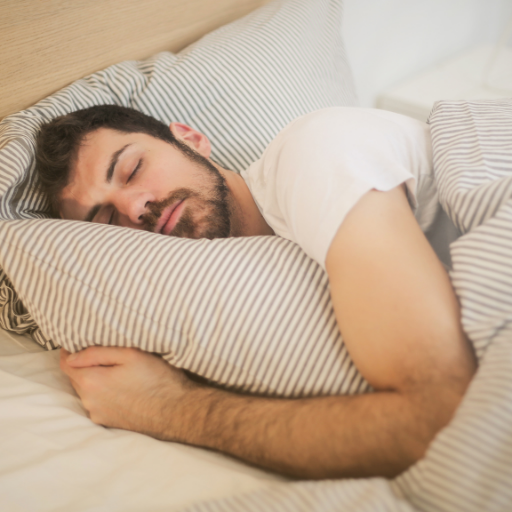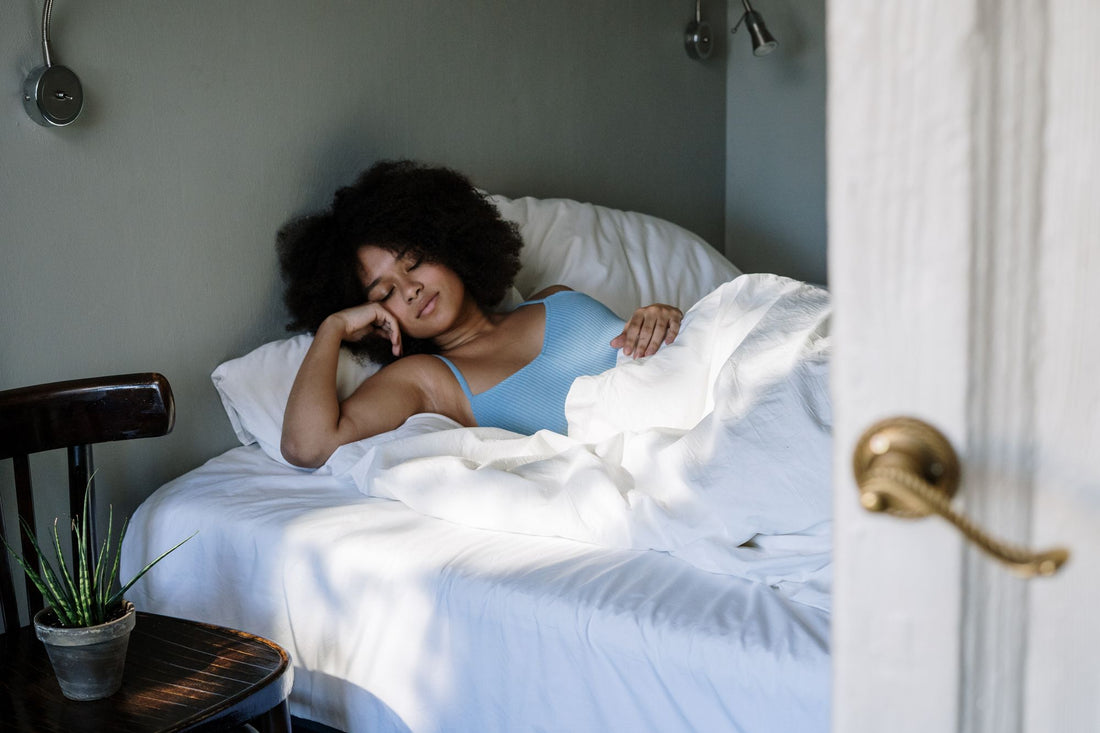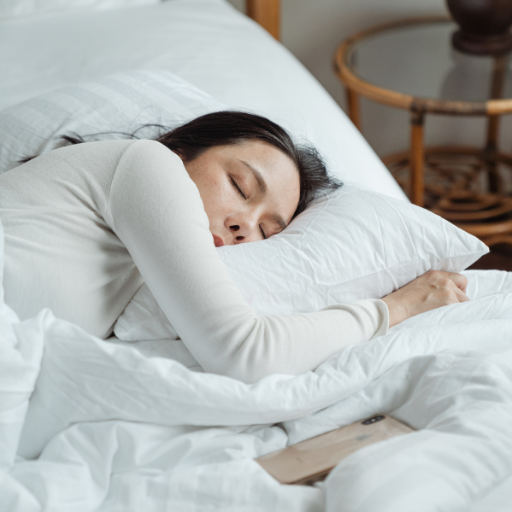Wellness Blog
The content on this blog is for general informational purposes only and is not a substitute for professional medical advice, diagnosis, or treatment. Always consult your healthcare provider before making changes to your health routine or taking new supplements.
Can exercise help me sleep? The connection between exercise and a restful sleep
Does exercise help you sleep? To answer this burning question, it's crucial to first understand the dynamics of exercise and sleep. Read on to learn how supplementation, when paired alongside a healthy diet, can help improve exercise performance and support quality sleep at night.Why is sleep important?Everybody needs sleep, as it is the time that our body is able to recharge and recuperate (1, 2). When a person lacks sleep, their ability to think, concentrate, make decisions, and process memories might be impaired. In addition, sleep deprivation can also result in a poorer physical state, causing reduced performance and increased chances of getting sick.The connection between exercise and sleepThere are many methods that can help us sleep better, such as a healthy diet, supplementation, and exercise. Exercise and sleep share an interesting relationship (3). While scientists are still unable to accurately explain their dynamics, it is understood that exercise greatly contributes to better sleep (2). But how exactly?Exercise changes your body temperatureWhen we exercise, our body temperature rises due to the increase in physical activity. Likewise, when we cool down, our body temperature drops. This drop in temperature mimics our body's state when we are asleep. This can signal the body that it is time to sleep (2, 5).Exercise helps release serotoninExercise helps the release and regulation of a hormone called serotonin (5). Serotonin has been linked to the regulation of consistency of sleep (6).Exercise can help set your body clockIf we regularly exercise outdoors, we get exposed to natural light. This in turn helps our body establish a reliable sleep-wake cycle, making it easier for us to sleep at consistent hours (7).Exercise helps relieve stress and mild anxietyWhen we exercise, our body releases feel-good hormones, like serotonin and endorphins, that help improve our mood and reduce mild anxiety. When we are less stressed or anxious, it's easier for us to fall into a deeper sleep (7).Exercise exhausts the bodyIt's actually harder to sleep the more energy we have. When we exercise, we expend any excess energy that we might have during the day. This means we might find it easy to sleep after exercise (7).Supplementation for better exercise and sleepSince exercise has such a big impact on sleep, it can help to ensure that we receive all the right nutrients from a well-rounded diet. Supplementation when paired alongside a healthy diet, can also help you to achieve your daily requirement of these nutrients. If you're looking to support your workouts and sleep, ashwagandha is a wonder herb that could fit the bill. Ashwagandha helps exercise performance by increasing physical endurance and stamina. Furthermore, this herb also helps improve sleep quality and reduce the time taken to fall asleep (8). Additionally, ashwagandha's benefits include better stress response and better muscle function for exercise. Ensuring that you have the right nutrients for exercise and sleep can be quite overwhelming. But with Vitable Vitamins, it can be stress-free! Vitable's personalised supplements boasts the best vitamin packs and the best vitamin delivery in Australia for ashwagandha and more. Subscribe now for the best vitamin subscription plan today!*Always read the label. Follow the directions for use. If symptoms persist, talk to your health professional. Vitamin and/or mineral supplements should not replace a balanced diet.References: Why Do We Need Sleep (2020), Accessed October 27, 2021 from https://www.sleepfoundation.org/how-sleep-works/why-do-we-need-sleep Exercising for Better Sleep (n.d.) Accessed October 27, 2021 from https://www.hopkinsmedicine.org/health/wellness-and-prevention/exercising-for-better-sleep The Bidirectional Relationship Between Exercise and Sleep: Implications for Exercise Adherence and Sleep Permanence (2014), Accessed October 27, 2021 from https://www.ncbi.nlm.nih.gov/pmc/articles/PMC4341978/ Exercise and Sleep (2021), Accessed October 27, 2021 from https://www.sleepfoundation.org/physical-activity/exercise-and-sleep Exercise and Insomnia (2020), Accessed October 27, 2021 from https://www.sleepfoundation.org/insomnia/exercise-and-insomnia Serotonin and Sleep: Molecular, Functional, and Clinical Aspects (2009). Accessed October 27, 2021 from https://www.ncbi.nlm.nih.gov/pmc/articles/PMC2675905/ How Exercise Affects Your Sleep (2020), Accessed October 27, 2021 from https://health.clevelandclinic.org/how-exercise-affects-your-sleep/ Efficacy and Safety of Ashwagandha Root Extract in Insomnia and Anxiety: A Double-blind, Randomized, Placebo-controlled Study (2019), Accessed October 27, 2021 from https://www.cureus.com/articles/22928-efficacy-and-safety-of-ashwagandha-withania-somnifera-root-extract-in-insomnia-and-anxiety-a-double-blind-randomized-placebo-controlled-study
Learn moreWhat happens if you don't get enough sleep? Sleep deprivation effects and top tips for quality sleep
Until the 1950s, most people thought of sleep as a passive, dormant part of our daily lives (1). Today, we understand that our brains remain active during sleep, and that sleep is essential to forming memories, and keeping our brains healthy. Read on to learn more about sleep, sleep deprivation effects, and what you can do to get optimal rest.How sleep worksThere are four stages of sleep, divided into two categories; REM (rapid eye movement) and non-REM.Stage 1 non-REM sleep is the lightest stage as the body's muscles and breathing activity start to relax. During stage 2 non-REM sleep, you enter deeper sleep and your body's heart rate and temperature drop. Considered the deepest stage of sleep, stage 3 non-REM has the greatest arousal threshold. If someone is awoken during this stage, they will experience a phase of mental fogginess and have moderately impaired have mental performance for 30 minutes to an hour (2).Stage 4, also known as REM (rapid eye movement) is when brain activity peaks during sleep. During this time, most of the body, except the eyes and breathing muscles experience temporary paralysis. Although dreams can happen during any stage, the most intense dreaming takes place during REM sleep. The REM sleep stage is believed to be essential for the brain in enhancing learning and memory (4).How the body regulates sleepThe body has two biological mechanisms that tell the body it needs to sleep. Circadian rhythms control your timing of sleep and cause you to be sleepy at night as well as your tendency to wake in the morning without an alarm, in tune with your body clock (5). This is best described by the feeling of increased energy in the morning while under the daylight and sleepiness at night especially after we turn the lights off.Sleep-wake homeostasis is the body's internal sleep tracker. The homeostatic sleep drive reminds the body to sleep after a certain time and regulates sleep intensity. This sleep drive gets stronger every hour you are awake and causes you to sleep longer and more deeply after a period of sleep deprivation (6).Adults are recommended to get at least seven hours of sleep (7). But besides the number of hours, there are also other factors that affect our sleep quality. Poor sleep quality leads to easily interrupted sleep and fatigue while awake. Sleep deprivation effects can be caused by bad sleeping habits or even sleep disorders. For the latter, seeking medical treatment may be helpful.Sleep deprivation effectsAccording to the Sleep Health Foundation, four out of ten Australian adults experience poor sleeping quality (13). Loss of sleep may result in the following:Reduced mental performanceNot getting enough or good quality sleep can lead to experiencing problems like grogginess, tiredness, and reduced mental performance.Health concernsPoor sleeping habits can negatively impact blood pressure, cardiovascular health, and blood sugar levels. Inadequate sleep can also result in psychological conditions.Workplace problemsIn the workplace, sleep deprivation may result in loss of productivity due to fatigue. It may even lead to absenteeism, as a worker has to take time off to recover from poor sleep habits (13). Another possible result is workplace injuries due to the lack of focus that arises from less sleep (13).Tips on how to sleep betterCreate a relaxing bedtime environmentStress during bedtime can come from several sources and encourage the heart rate and blood pressure to increase (7). Try taking a warm bath an hour or two before bed. When you wake, make sure to get some natural light in your room to tell your body clock: it's time to wake. This will also tell your brain to hold off on producing melatonin until it gets darker and it's time to sleep again. Always remember that consistency is the key.Exercise regularlyThe connection between sleep and exercise has been well studied over the years. Major sleep deprivation effects can be mitigated with regular exercise that promotes better sleep quality and even increase the amount of time a person sleeps (8).Opt for supplementationYou can ensure the body receives sufficient nutrients through a well-balanced and healthy diet plan. Supplementation can help you achieve your daily requirements of these nutrients when paired with a well-rounded diet. Ashwagandha has been used in Ayurvedic (Indian) and Chinese medicine as a natural remedy for sleep, stress and overall vitality.Ashwagandha's herbal substance aids in reducing the time taken to sleep and promotes better sleep quality. It naturally contains alkaloids that act as a sedative and help in reducing sleep deprivation effects.Ashwagandha also contains the active sleep-inducing component triethylene glycol in its leaves. This component was seen to induce significant non-REM sleep, as well as slight changes to REM sleep (14).Vitable Australia's Ashwagandha only uses high quality plant extracts, made using gentle solvents. Take the expert quiz and learn how ashwagandha can support your sleep as part of your Vitable custom supplements. What's better, our services also come with vitamin delivery where you can get your vitamin packs anywhere in Australia.*Always read the label. Follow the directions for use. If symptoms persist, talk to your health professional. Vitamin and/or mineral supplements should not replace a balanced diet.References: American Sleep Association. What is Sleep and Why is It Important? Published on https://www.sleepassociation.org/about-sleep/what-is-sleep/. Accessed Oct 27, 2021. Aakash K. Patel, Vamsi Reddy, John F. Araujo. Physiology, Sleep Stages. NCBI. Updated April 22, 2022 on https://www.ncbi.nlm.nih.gov/books/NBK526132/. Accessed Oct 27, 2021. Eric Suni, John DeBanto. How Sleep Works. Sleep Foundation. Updated Oct 23, 2020 on https://www.sleepfoundation.org/how-sleep-works. Accessed Oct 27, 2021. Division of Sleep Medicine at Harvard Medical School. Sleep, Learning and Memory. Published Dec 18, 2007 on http://healthysleep.med.harvard.edu/healthy/matters/benefits-of-sleep/learning-memory. Accessed Oct 27, 2021. NIH. Brain Basics: Understanding Sleep. Published on https://www.ninds.nih.gov/Disorders/Patient-Caregiver-Education/Understanding-Sleep. Accessed Oct 27, 2021. NIH. Brain Basics: Understanding Sleep. Published on https://www.ninds.nih.gov/Disorders/Patient-Caregiver-Education/Understanding-Sleep. Accessed Oct 27, 2021. Centers for Disease Control and Prevention. How Much Sleep Do I Need? Published on https://www.cdc.gov/sleep/about_sleep/how_much_sleep.html. Accessed Oct 27, 2021. Danielle Pacheco. “Exercise and Sleep”. Sleep Foundation. Published Jan 22, 2021 on https://www.sleepfoundation.org/physical-activity/exercise-and-sleep. Accessed on Oct 27, 2021. Mayo Clinic. Sleep Disorders. Published on https://www.mayoclinic.org/diseases-conditions/sleep-disorders/symptoms-causes/syc-20354018. Accessed Oct 27, 2021. Sleep.Org. How Sleep Works. Published Mar 12, 2021 on https://www.sleep.org/how-sleep-works/. Accessed Oct13, 2021. Christopher E. Kline, Ph.D. “The bidirectional relationship between exercise and sleep: Implications for exercise adherence and sleep improvement”. National Center for Biotechnology Information. Published Nov1, 2015 on https://www.ncbi.nlm.nih.gov/pmc/articles/PMC4341978/. Accessed on Oct 27, 2021. Kumar, A., Kalonia, H.. Protective effect of Withania somnifera Dunal on the behavioral and biochemical alterations in sleep-disturbed mice. Indian Journal of experimental biology, Published 2017 on https://www.ncbi.nlm.nih.gov/pubmed/17585686. Accessed Oct 27, 2021 Sleep Health Foundation. Asleep on the job: Costs of inadequate sleep in Australia. Published August 2017 on https://www.sleephealthfoundation.org.au/files/Asleep_on_the_job/Asleep_on_the_Job_SHF_report-WEB_small.pdf. Accessed November 1, 2021 Kumar, A., Kalonia, H. Effects of Withania somnifera on Sleep-Wake cycle in Sleep-Disturbed Rats: Possible GABAergic Mechanism. Published November 2008 on https://www.ncbi.nlm.nih.gov/pmc/articles/PMC3040882/ . Accessed Nov 24, 2021
Learn moreCan Magnesium Really Help You Get Better Sleep?
Suffering from sleepless nights, or feel like you don't get adequate sleep at all? Find out how magnesium can help you, and good sleeping habits you can start cultivating today to feel rested and rejuvenated.
Learn moreAll you need to know about sleeping patterns
Sleep is a natural state of rest that is encouraged by the body to help repair and revitalise our mind, form and senses. A healthy sleeping pattern is something we all need as part of leading a happy, balanced and productive lifestyle. What are sleeping patterns and why are they important?Sleeping patterns are basically a person's schedule of when they go to sleep and when they wake up (1). Besides the general sleeping schedule we have at night time (or whatever time you sleep), sleeping patterns also cover the naps you take during the day (if you take any). Along with daytime naps, it also covers the duration or length at which you sleep and whatever interruptions you experience during that time (1).Sleeping patterns are important because it helps us to be able to consistently fall asleep faster. More importantly, a regular sleeping pattern helps us become more productive when we are awake (1).Different types of sleeping patternsThere are three kinds of sleeping patterns that people follow (1). Monophasic: A monophasic sleep pattern is when a person sleeps only once a day, usually during nighttime. Biphasic: A biphasic sleep pattern is when a person's daily sleeping routine is divided into two chunks within the day. The most common example of this is sleeping at night but also taking a nap during the day. Polyphasic: In this sleep pattern, a person sleeps multiple times in a day. The schedule and frequency and time of sleep varies from one person to another. How to fix your sleeping patternThere's no need to fix your sleeping pattern as long as you aren't experiencing negative effects. What's good for some might not work as well for you, and vice versa. However, some sleeping patterns might be problematic for certain lifestyles: for example, a polyphasic sleep pattern will pose a problem if you have a 9-to-5 job. If that's the case, then here are some tips on how to fix our sleeping patterns (2, 3, 4).ConsistencyIt helps to pick a sleeping and waking time and stick to it. While it might be hard at first, your body will slowly get used to it. Establishing a sleeping routine or ritual might help give your body cues on when it's time to sleep, helping it become more consistent (2, 3, 4).Avoid caffeine, cigarettes and alcoholWhile it is true that alcohol can certainly get you sleepy, it can also cause you to wake up at night and disrupt your sleep. On the other hand, coffee and cigarettes are stimulants that are famous for keeping you awake (2, 3, 4).Be wary of daytime napsIf you're trying to sleep at an earlier time at night, it helps to be more careful about taking naps during the day. While they do feel great and are very restful, they can also derail your sleeping plans during the night. If you really need to take a nap, try to keep it to within 20-30 minutes (2, 3, 4).Try taking some AshwagandhaIf you're looking for extra help on how to fix your sleeping pattern, this herb, used in traditional medicine, is known to support better quality sleep. It's particularly helpful for individuals dealing with insomnia, as research has shown that it helps improve sleep quality, deep sleep and reduce the time taken to fall asleep (5, 6).Not all Ashwagandha is the same. If you're looking for a great, premium source of Ashwagandha, then Vitable's Ashwagandha Plus might be a good choice for you. Sleep is an important and critical part of a healthy lifestyle. Being more knowledgeable on how to fix your sleeping pattern can lead to a more productive and healthy you. Vitable Australia offers a premium vitamin subscription available for your specific health needs. Sign up for custom vitamin packs, made up of daily vitamins delivered to you through our vitamin delivery in Australia.*Always read the label. Follow the directions for use. If symptoms persist, talk to your health professional. Vitamin and/or mineral supplements should not replace a balanced diet.References: Sleep Dictionary (2021) Researched Jan. 11, 2022 from https://www.sleepfoundation.org/how-sleep-works/sleep-dictionary Sleep (2020) Researched Jan. 11, 2022 from https://www.healthdirect.gov.au/sleep How to Reset Your Sleep Routine (2021) Researched Jan. 11, 2022 from https://www.sleepfoundation.org/sleep-hygiene/how-to-reset-your-sleep-routine Ten Tips for a Good Night's Sleep (2020) Researched Jan. 11, 2022 from https://www.sleephealthfoundation.org.au/tips-for-a-good-night-s-sleep.html Protective effect of Withania somnifera Dunal on the behavioral and biochemical alterations in sleep-disturbed mice (Grid over water suspended method) (2007) Researched Jan. 11, 2022 from https://pubmed.ncbi.nlm.nih.gov/17585686/ An investigation into the stress-relieving and pharmacological actions of an ashwagandha (Withania somnifera) extract: A randomized, double-blind, placebo-controlled study (2019) Research Jan. 11, 2022 from https://oce.ovid.com/article/00005792-201909130-00067/HTM
Learn more







